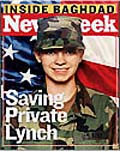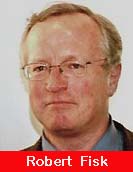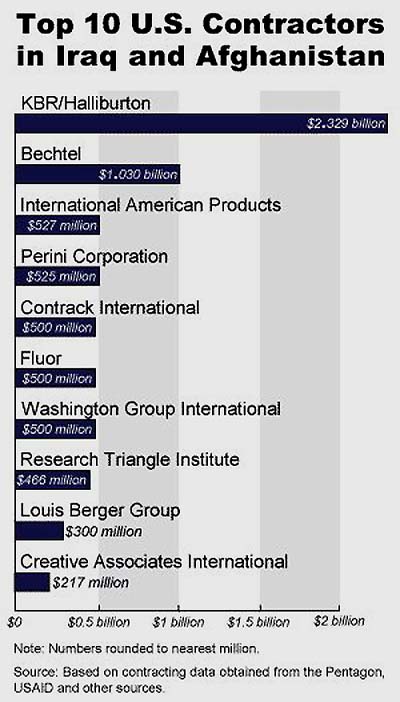Zbigniew Brzezinski: Speech at "New American Strategies for Security and Peace" Conference - October, 28, 2003
***** A MUST- READ Speech
Click HERE to READ the transcript of the speech delivered by former National Security Adviser Zbigniew Brzezinski on Oct. 28 at New American Strategies for Security and Peace, a conference co-sponsored by the Prospect in Washington, D.C
By Zbigniew Brzezinski
Former National Security Adviser in the Carter Administration
Excerpts from Zbigniew Brzezinski's speech
" Ladies and gentlemen, forty years ago almost to the day an important Presidential emissary was sent abroad by a beleaguered President of the United States.
The United States was facing the prospect of nuclear war. These were the days of the Cuban Missile Crisis. Several emissaries went to our principal allies.
One of them was a tough-minded former Secretary of State, Dean Acheson whose mission was to brief President De Gaulle and to solicit French support. The former Secretary of State then said to him (De Gaulle) at the end of the briefing:"I would now like to show you the evidence, the photographs that we have of Soviet missiles armed with nuclear weapons. "
The French President responded by saying:
" I do not wish to see the photographs. The word of the President of the United States is good enough for me. Please tell him that France stands with America. "
Would any foreign leader
today react the same way to an American emissary who would go abroad and say that country X is armed with weapons of mass destruction which threaten the United States?
There's food for thought in that question.
Fifty-three years ago, following the assault by North Korea on South Korea, the Soviet Union boycotted a proposed resolution in the U.N. Security Council for a collective response to that act. That left the Soviet Union alone in opposition, stamping it as a global pariah.
Global Leadership and Credibility
In the last three weeks, there were two votes on the subject of the Middle East in the General Assembly of the United Nations.
In one of them the vote was
133 to four. In the other one the vote was
141 to 4, and
the four included the United States, Israel, Marshall Islands and Micronesia.
All of our NATO allies voted with the majority including Great Britain, including the so-called new allies in Europe -- in fact almost all of the EU -- and Japan.
I cite these events because I think they
underline two very disturbing phenomena --
the loss of U.S. international credibility, the growing U.S. international isolation.
American power worldwide is at its historic
zenith. American global political standing is at its
nadir.
Why? What is the cause of this?
These are facts. They're measurable facts. They're also felt facts when one talks to one's friends abroad who like America, who value what we treasure but do not understand our policies, are troubled by our actions and are perplexed by what they perceive to be either demagogy or mendacity.
Maybe the explanation is that we are rich, and we are, and that we are powerful, and we certainly are.
But if anyone thinks that this is the full explanation I think he or she is taking the easy way out and engaging in a self-serving justification.
I think we have to take into account
two troubling conditions.
"He who is not with us is against us"
Since the tragedy of 9-11, we have increasingly embraced at the highest official level a
paranoiac view of the world.
Summarized in a phrase repeatedly used at the highest level,
"he who is not with us is against us."
I say repeatedly because actually some months ago I did a computer check to see how often it's been used at the very highest level in public statements. The count then quite literally was
ninety-nine.
I strongly suspect the person who uses that phrase doesn't know its historical or intellectual origins.
It is a phrase
popularized by Lenin (Applause) when he attacked the social democrats on the grounds that they were anti-Bolshevik and therefore he who is not with us is against us and can be handled accordingly.
War on Terrorism
This phrase in a way is part of... the central defining focus that our policy-makers embrace in determining the American position in the world and is summed up by the words
"war on terrorism."
War on terrorism defines the central preoccupation of the United States in the world today, and it does reflect in my view
a rather narrow and extremist vision of foreign policy of the world's first superpower, of a great democracy, with genuinely idealistic traditions.
The second condition, troubling condition, which contributes to the crisis of credibility and to the state of isolation in which the United States finds itself today is due in part because that
skewed view of the world is intensified by a fear that periodically verges on panic that is in itself blind.
By this I mean the
absence of a clearly, sharply defined perception of what is transpiring abroad regarding particularly such critically important security issues as the existence or the spread or the availability or the readiness in alien hands of weapons of mass destruction.
We have actually experienced in recent months a dramatic demonstration of an
unprecedented intelligence failure, perhaps the most significant intelligence failure in the history of the United States.
That failure was contributed to and was compensated for
by extremist demagogy which emphasizes the
worst case scenarios which stimulates fear, which induces a very simple dichotomic view of world reality.
I think it is important to ask ourselves as citizens,
whether a world power can really provide global leadership on the basis of fear and anxiety?
Can it really mobilize support and particularly the support of friends when we tell them that if you are not with us you are against us?
I think that
calls for serious debate in America about the role of America in the world, and I do not believe that that serious debate is satisfied simply by a very abstract, vague and quasi-theological definition of the war on terrorism as the central preoccupation of the United States in today's world.
It doesn't point directly at the problem. It's as if we said that World War II was not against the Nazis but against blitzkrieg.
Foreign policy of a pluralistic democracy like the United States should be based on bipartisanship because bipartisanship is the means and the framework for formulating policies based on moderation and on the recognition of the complexity of the human condition. Bipartisanship helps to avoid extremes and imbalances.
European Allies
The first and most important is to emphasize the enduring nature of the alliance relationship particularly with Europe which does share our values and interests even if it disagrees with us on specific policies. We should seek to cooperate with Europe, not to divide Europe to a fictitious new and a fictitious old.
And we should recognize that in some parts of the world Europeans have more experience and more knowledge than we and certain interests as important as ours. I think particularly of the Middle East.
Part of the process of building a larger zone of peace involves also engaging Russia and drawing it into a closer relationship simultaneously with Europe and with the Euro-Atlantic community. But we can only do that if we are clear as to what we are seeking in pursuing that strategy.
While America is paramount it isn't omnipotent.
We need the Europeans. We need the European Union. (Applause) We have to consistently strive to draw in Russia.
Secondly, we have to deal with that part of the world which is a zone of conflict and try to transform it into a zone of peace, and that means above all else the Middle East.
Iraq
In Iraq we must succeed. Failure is not an option. But...what is the definition of success? More killing, more repression, more effective counter-insurgency, the introduction of newer devices of technological type to crush the resistance or whatever one wishes to call it -- the terrorism?
Or is it a deliberate effort to promote by using force a political solution?
And if there's going to be a political solution in Iraq, clearly I think it is obvious that two prerequisites... namely the internationalization of the foreign presence in Iraq. In addition, we have to transfer power as soon as is possible to a sovereign Iraqi authority.
Therefore there's nothing to be lost in prematurely declaring the Iraqi authority as sovereign if it helps it to gain political legitimacy in a country which is searching to define itself, which has been humiliated, in which there is a great deal of ambivalence.
The sooner we do that the more likely is an Iraqi authority under an international umbrella that becomes itself more effective in dealing with the residual terrorism and opposition that we continue to confront.
If you want to understand what is happening right not in Iraq I suggest a movie that was quite well known to a number of people some years ago. It's called
"The Battle For Algiers".
It is a movie that deals with what happened in Algeria after the Algerian Liberation Army was defeated in the field by the French army and the resistance which used urban violence, bombs, assassinations, and turned Algiers into a continuing battle that eventually wore down the French.
Israeli-Palestinian Conflict
We will not turn the Middle East into a zone of peace instead of a zone of violence unless we more clearly identify the United States with the pursuit of peace in the Israeli/Palestinian relationship.
There will be
no option of a two-state solution. Soon the reality of the settlements which are colonial fortifications on the hill with swimming pools next to favelas below where there's no drinking water and where the population is 50% unemployed, there will be no opportunity for a two-state solution with
a wall that cuts up the West Bank even more and creates more human suffering.
Increasingly the only prospect if this continues is
Israel becoming increasingly like apartheid South Africa -- the minority dominating the majority, locked in a conflict from which there is no extraction.
If we want to prevent this the United States above all else must identify itself with peace and help those who are the majority in Israel, who want peace and are prepared to accept peace.
The United States as the government will soon have an opportunity to underline their commitments to a peaceful solution in the Middle East because in the next two weeks a group of Israelis and Palestinians are going to unveil a detailed peace plan. It's a fifty-page document with maps and detailed compromise solutions for all of the major contentious issues, solutions which public opinion shows 70% of the Israelis would accept.
When that happens what will be the stance of the United States?
Sharon has already condemned it, and not surprisingly. I hope we do not decide to condemn it. I hope we will show at least a positive interest, and
many of us as citizens, should endorse it because if we count on the people who want peace eventually we will move towards peace. But they have to be mobilized and given support.
One of the reasons that that support from the United States has not been forthcoming is in fact
political cowardice which I think is unjustified because I have real confidence in the good judgment, both of the Israeli people and of the American Jewish community and more basically of the basic American preference for a moderate peaceful solution. (Applause)
Nuclear Profileration
The last third area pertains more broadly to strategic doctrine and to strategic commitment. It involves trying to deal with nuclear proliferation, and we are learning fortunately that we can only deal with that problem when it comes to North Korea or to Iran by cooperation with other major powers.
That we have to support, and if the administration moves in that direction or is prodded to move in that direction that is all to the good because there is no alternative.
If we try to resolve the North Korean problem by arms alone we will produce a violent reaction against the United States in South Korea--and don't underestimate the growing anti-American tendencies in South Korean nationalism -- and will precipitate a nuclear armed Japan and thereby create a whole duel strategic dynamic in the Far East.
In the case of Iran it is also in our interest that the theocratic despotism fade. Notice the reception given to the Nobel Peace Prize winner when she returned to Tehran. That is a symptom of things to come. (Applause)
And if we take preemptory action we will reinforce the worst tendencies in the theocratic fundamentalist regime, not to speak about the widening of the zone of conflict in the Middle East.
National Security Intelligence
For four years I was the principal channel of intelligence to the President of the United States. We had a pretty good idea of the nature of the security challenge that we faced because the challenge itself was based on a highly advanced scientific technological system of arms.
Today the problem is much more difficult. It's more elusive. These can only be addressed if we have... really effective intelligence service.
I find it appalling that when we went into Iraq we did NOT know if they had weapons of mass destruction.
We thought they had weapons of mass destruction
based largely on extrapolation.
But that also means that our commanders in the field went into battle without any knowledge of the Iraqi WMD order of battle. They did not know what units, brigades or divisions in the Iraqi armed forces were equipped with what kind, allegedly, of weapons of mass destruction. Were there chemical weapons on the battalion level or on the brigade level or were there special units in the different divisions that were supposed to use chemical weapons?
What about the alleged existence of bacteriological weapons? Who had them? Who had the right to dispose of them? What about the allegedly reconstituted nuclear program? At what level of development was it? Where were these weapons to be deployed?
If we want to lead, we have
to have other countries trust us. When we speak they have to think it is the truth.
This is why De Gaulle said what he did. This is what others believed us. This is why they believed us prior to the war in Iraq.
It isn't that the Norwegians or the Germans or whoever else had their own independent intelligence services. They believed us, and they no longer do.
Ultimately at issue, and I end on this, is the relationship between the new requirements of security and the traditions of American idealism.
We have for decades and decades played a unique role in the world because we were viewed as a society that was generally committed to certain ideals and that we were prepared to practice them at home and to defend them abroad.
Today for the first time, our commitment to idealism worldwide is challenged by a sense of security vulnerability.
We have to be very careful in that setting
not to become self-centered, preoccupied only with ourselves and subordinate everything else in the world to an exaggerated sense of insecurity.
We are going to live in an insecure world. It cannot be avoided. We have to learn to live in it with dignity, with idealism, with steadfastness. Thank you. (Applause) -
Zbigniew Brzezinski

 After weeks of slurs, accusations of terrorist sympathies and racial hatred, Hanan Ashrawi finally accepted the 2003 Sydney Peace Prize to polite applause and a civilised standing ovation.
After weeks of slurs, accusations of terrorist sympathies and racial hatred, Hanan Ashrawi finally accepted the 2003 Sydney Peace Prize to polite applause and a civilised standing ovation.
 A biography of Jessica Lynch will mention the former U-S soldier's apparent rape at the hands of her Iraqi captors.
A biography of Jessica Lynch will mention the former U-S soldier's apparent rape at the hands of her Iraqi captors.


 <
<
